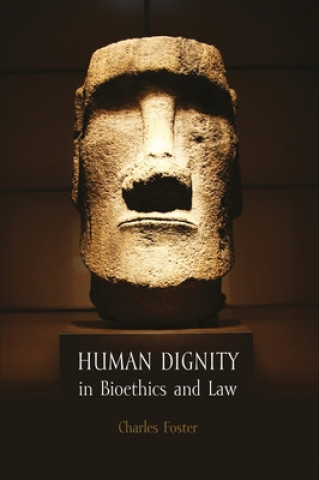
Kod: 05106774
Human Dignity in Bioethics and Law
Autor Charles Foster
Dignity is often denounced as hopelessly amorphous or incurably theological: as feel-good philosophical window-dressing, or as the name given to whatever principles give you the answer that you think is right. This is wrong, says ... więcej
- Język:
 Angielski
Angielski - Oprawa: Miękka
- Liczba stron: 218
Wydawca: Bloomsbury Publishing, 2011
- Więcej informacji o książce

Zobacz książki o podobnej tematyce
-

Hocus Bogus
79.13 zł -

Miss Mackenzie
155.45 zł -

Vampire Film
122.83 zł -

Reforming the World Trading System
921.57 zł -

Making Yugoslavs
359.34 zł -4 % -

Snow Friends
28.99 zł -23 % -

Nietzsche and the Rebirth of the Tragic
619.41 zł -

Christian's Mistake
112.86 zł -

Emotional Disorders & Metacognition - Innovative Cognitive Therapy
527.28 zł -

Integrated Business Communication - In a Global Marketplace
292.18 zł -

Inorganic Reactions and Methods V 6-Formation of
3181.18 zł -

Soviet Trade Unions
188.78 zł -

Introduction to the New Testament
255.83 zł -4 % -

Interpretation of St Paul's Epistle to the Romans, Chapters 8-16
275.77 zł
Podaruj tę książkę jeszcze dziś
- Zamów książkę i wybierz "Wyślij jako prezent".
- Natychmiast wyślemy Ci bon podarunkowy, który możesz przekazać adresatowi prezentu.
- Książka zostanie wysłana do adresata, a Ty o nic nie musisz się martwić.
Więcej informacji o Human Dignity in Bioethics and Law
Za ten zakup dostaniesz 221 punkty
 Opis
Opis
Dignity is often denounced as hopelessly amorphous or incurably theological: as feel-good philosophical window-dressing, or as the name given to whatever principles give you the answer that you think is right. This is wrong, says Charles Foster: dignity is not only an essential principle in bioethics and law; it is really the only principle. In this ambitious, paradigm-shattering but highly readable book, he argues that dignity is the only sustainable Theory of Everything in bioethics. For most problems in contemporary bioethics, existing principles such as autonomy, beneficence, non-maleficence, justice and professional probity can do a reasonably workmanlike job if they are all allowed to contribute appropriately. But these are second order principles, each of which traces its origins back to dignity. And when one gets to the frontiers of bioethics (such as human enhancement), dignity is the only conceivable language with which to describe and analyse the strange conceptual creatures found there. Drawing on clinical, anthropological, philosophical and legal insights, Foster provides a new lexicon and grammar of that language which is essential reading for anyone wanting to travel in the outlandish territories of bioethics, and strongly recommended for anyone wanting to travel comfortably anywhere in bioethics or medical law. 'The Beauchamp-Childress medical ethic paradigm has dominated medical ethics for four decades. It never worked very well but it was teachable, flexible, and transparent. Foster gives us a better paradigm - teachable, transparent, and plausible. Better yet a paradigm - human dignity - that is likely to make us better people, better physicians, and better care givers. Foster refocuses us on what is truly common among us as a basis for dealing with the central ethical issues of health care, patient care, and death care. This is a new reconceiving of medical ethics and everyone who cares about these matters needs to get comfortable with thinking in this refreshing new way.' Stefan Baumrin, Professor of Philosophy, City University of New York, Graduate Center, and Professor of Medical Education, Mount Sinai School of Medicine, New York 'Wide-ranging and erudite, Foster's book 'Takes Dignity Seriously'. Dignity is shown to be a core value in law and bioethics, foundational, a lens through which to project hard cases. It is a rare book which finds a common thread to questions as disparate as euthanasia, sado-masochism, enhancement, cloning, abortion, refusals of medical treatment by children, and numerous other areas of controversy. But this is achieved thoughtfully, entertainingly, and persuasively, in the process throwing new light on many leading cases in the UK , USA, Germany and Israel. It is bound to provoke debate, even controversy. It will be a great assignment for university seminars.' Michael Freeman FBA, Professor of English Law, UCL 'I never had any respect for the concept of human dignity. I thought it was a motherhood concept, empty of real practical import. But Foster converted me. Foster, uniquely, goes the right way round, identifying real human problems and trying to solve them, rather than starting with philosophical problems and theories and creating a concept of dignity that fits them. This is a book for people and progress. It's the best book on dignity I know.' Julian Savulescu, Uehiro Chair of Practical Ethics, University of Oxford 'This book is the perfect antidote to the unseemly polemics that have dominated recent debates about the concept of dignity in bioethics. Foster takes the notion of dignity seriously and argues that it is indispensible to deliberations about pressing issues in bioethics such as informed consent, abortion, euthanasia, cloning, enhancement, and the use of body parts. He argues that the concept is more fundamental than our concepts of autonomy, rights, and justice, and requires us to think hard about more substantive issues such as what it means to be human and what it means to flourish as a human being. He presents an excellent overview of the current literature on dignity in bioethics, usefully collecting together in one place sources from philosophy, clinical bioethics, law, international conventions, and the blogosphere. While scholarly, it is accessibly written in lucid and lively prose. Human Dignity in Bioethics and Law is a substantial contribution that moves the debate on this contentious but important issue up to the next level.' Daniel P Sulmasy, Kilbride-Clinton Professor of Medicine and Ethics, University of Chicago 'In Human Dignity in Bioethics and Law Charles Foster sets out an argument that is provocative in its simplicity: dignity is the 'bioethical theory of everything', the value by which all bioethical disputes should be adjudicated. Drawing extensively from both philosophical and legal debates, this book makes an important contribution to a central issue facing societies in the 21st Century. It deserves to be highly influential for academics and practitioners alike.' Suzy Killmister, Massey University 'Charles Foster's Human Dignity in Bioethics and Law sets out clearly the state of the question regarding the basis of personal dignity. It also advances an original argument to defend a substantive content for the concept of dignity. It is worthy of study and re-study.' Patrick Lee, John N and Jamie D McAleer Professor of Bioethics. Director, Institute of Bioethics, Franciscan University of Steubenville 'Charles Foster has written a remarkably thoughtful and eloquent book, arguing persuasively that 'human dignity'-not 'autonomy' or any other narrow principle-is the indispensable lens through which to view the perplexing moral landscape of contemporary bioethics. I learned much from this comprehensive, open-minded, and deeply humane volume.' Adam Schulman, co-editor of Human Dignity and Bioethics: Essays Commissioned by the President's Council on Bioethics 'This is a spirited study, engagingly written, deeply immersed in the relevant literature, and rich in insight. A valuable contribution to the study of human dignity from a bioethical perspective.' George Kateb, William Nelson Cromwell Professor of Politics, Emeritus, Princeton University 'Charles Foster's analysis and defence of the concept of dignity as fundamental in medical law and ethics is to be welcomed warmly by scholars and students of the field. It is written with his characteristic verve and panache, yet is at the same time thoughtful and scholarly. We are all in his debt for his analysis of the philosophical, historical, sociological and legal accounts of dignity. And even if you do not accept all his normative conclusions, his demonstrations of dignity-based reasoning in law and ethics are genuinely illuminating and helpful.' Richard Ashcroft, Professor of Bioethics, Queen Mary College, London 'Respecting patients' dignity is one of the most commonly used ideas in bioethics: whether in professional guidelines, in legal judgments or in casual conversation. And yet philosophers, on the whole, don't like it. Many argue that it is too vague and that it can be replaced by other, better concepts, such as autonomy. Indeed this was my position. Foster, however, swims strongly against this philosophical tide and has forced me to rethink. Those who want to sideline dignity will need to read this book and engage with Foster's arguments. Those more open to the importance of dignity will enjoy Foster's company as he informs and amuses the reader with bizarre legal cases and forceful analyses.' Tony Hope, Professor of Medical Ethics, University of Oxford 'Dignity has long been considered the most protean of ethical concepts-shapeshifting, frustratingly elusive, impossible to pin down-but in this invigorating book, Charles Foster argues powerfully for dignity to be reinstated at the heart of thinking about ethics in medical practice. Dignity is, in Foster's hands, a richly empirical concept concerning the embodied and socially embedded moral lives of real people and what it is that makes it possible for them to 'flourish': the normative force of dignity being provided by empirical evidence about the interpersonal conditions under which humans either do or don't thrive. Through an analysis of real and hypothetical cases, Foster argues that ethics should be concerned with the encouragement (the maximisation even) of such relationships. Foster believes that the normative force of dignity 'is best appreciated in the wild places', illustrating this through a number of worked examples concerning 'places' such as reproductive choice and 'enhancement'. But ultimately, perhaps, it is in the interactions between human beings in the quotidian settings of health care practice, discussed in earlier chapters, in which dignity is shown at its most powerful as a way of knowing the difference between ethical and unethical practices and where dignity is or is close to being, as Foster argues-at the heart of everything.' Michael Parker, Professor of Bioethics, University of Oxford 'This brilliant, erudite, and yet common-sensical book is written by a moral philosopher and lawyer who reasonably hates Kant, sees clearly the limits of autonomy in describing who we are, and defends ably the dignity of the embodied, relational beings we are. I certainly agree that dignity has a substantial meaning that can be deployed by real people making challenging decisions, and I now know a lot more about why that is so.' Peter Lawler, Dana Professor of Government, Berry College, Georgia and author of Modern and American Dignity
 Szczegóły książki
Szczegóły książki
Kategoria Książki po angielsku Society & social sciences Society & culture: general Ethical issues & debates
379.38 zł
- Pełny tytuł: Human Dignity in Bioethics and Law
- Autor: Charles Foster
- Język:
 Angielski
Angielski - Oprawa: Miękka
- Liczba stron: 218
- EAN: 9781849461771
- ISBN: 1849461775
- ID: 05106774
- Wydawca: Bloomsbury Publishing
- Waga: 332 g
- Wymiary: 159 × 235 × 15 mm
- Data wydania: 01. September 2011
Ulubione w innej kategorii
-
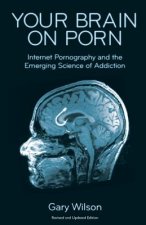
Your Brain on Porn
79.43 zł -

Crack in Creation
52.35 zł -15 % -

Gene
61.21 zł -15 % -

Quest for Community
107.62 zł -11 % -

Operation Hollywood
130.88 zł -1 % -

Pornography
270.23 zł -

Beyond Tolerance
165.62 zł -

Shaking Hands With Death
24.56 zł -23 % -

RU 486: Misconceptions, Myths and Morals
77.52 zł -15 % -

Move Fast and Break Things
51.84 zł -23 % -

Genomics and Personalized Medicine
70.67 zł -5 % -

Ill Fares The Land
51.84 zł -23 % -

Sex Trafficking
101.38 zł -5 % -

Porn Archives
193.41 zł -

Adult Coloring Book
35.03 zł -

Playing the Whore
51.84 zł -9 % -

Robot Sex
82.35 zł -4 % -

Kiss the Ground
81.65 zł -5 % -

Thriving in Sex Work
65.74 zł -4 % -

Golden Goddesses
297.01 zł -

Rethinking Life and Death
85.57 zł -5 % -

50 Reasons to Buy Fair Trade
79.63 zł -10 % -

Porn Panic! - Sex and Censorship in the UK
72.79 zł -14 % -

Pornified
97.45 zł -5 % -

Life's Dominion: An Argument about Abortion, Euthanasia, and Individual Freedom
90.20 zł -

Should We All Be Vegan?
88.90 zł -6 % -

Road Of Lost Innocence
51.84 zł -23 % -

This Common Secret
128.16 zł -
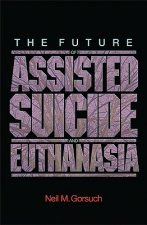
Future of Assisted Suicide and Euthanasia
182.03 zł -

How the Pro-Choice Movement Saved America: Freedom, Politics, and the War on Sex
85.98 zł -

Ethics and Emerging Technologies
564.34 zł -

Film and Video Censorship in Modern Britain
159.08 zł -15 % -
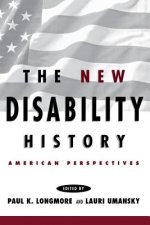
New Disability History
171.76 zł -

Moral Principles and Political Obligations
286.75 zł -

Idea of Prostitution
102.89 zł -15 % -

Histories of Human Engineering
593.13 zł -

Ethics and Practice in Science Communication
222.20 zł -

Pimp State
42.68 zł -23 % -

Sex, Lies, and Brain Scans
103.50 zł -9 % -

Paid For
56.48 zł -23 % -

Robot Sex
141.35 zł -21 % -

Which Side of History?
84.97 zł -6 % -

Propaganda And Control Of The Public Mind
36.74 zł -23 % -

Unlearning Liberty
67.55 zł -15 % -
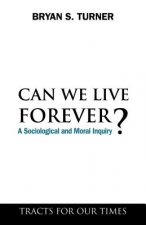
Can We Live Forever?
146.39 zł -

Better Left Unsaid
586.79 zł -

Hastings Center Guidelines for Decisions on Life-Sustaining Treatment and Care Near the End of Life
370.92 zł -
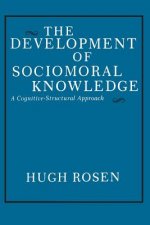
Development of Sociomoral Knowledge
253.92 zł -

Abortion Pills, Test Tube Babies, and Sex Toys
226.33 zł
zadowolonych klientów
Od roku 2008 obsłużyliśmy wielu miłośników książek, ale dla nas każdy był tym wyjątkowym.
Copyright! ©2008-24 libristo.pl Wszelkie prawa zastrzeżonePrywatnieCookies



 21 milionów książek
21 milionów książek Dostawa 10.99 zł
Dostawa 10.99 zł (32) 444 93 66 (8-15.30h)
(32) 444 93 66 (8-15.30h)